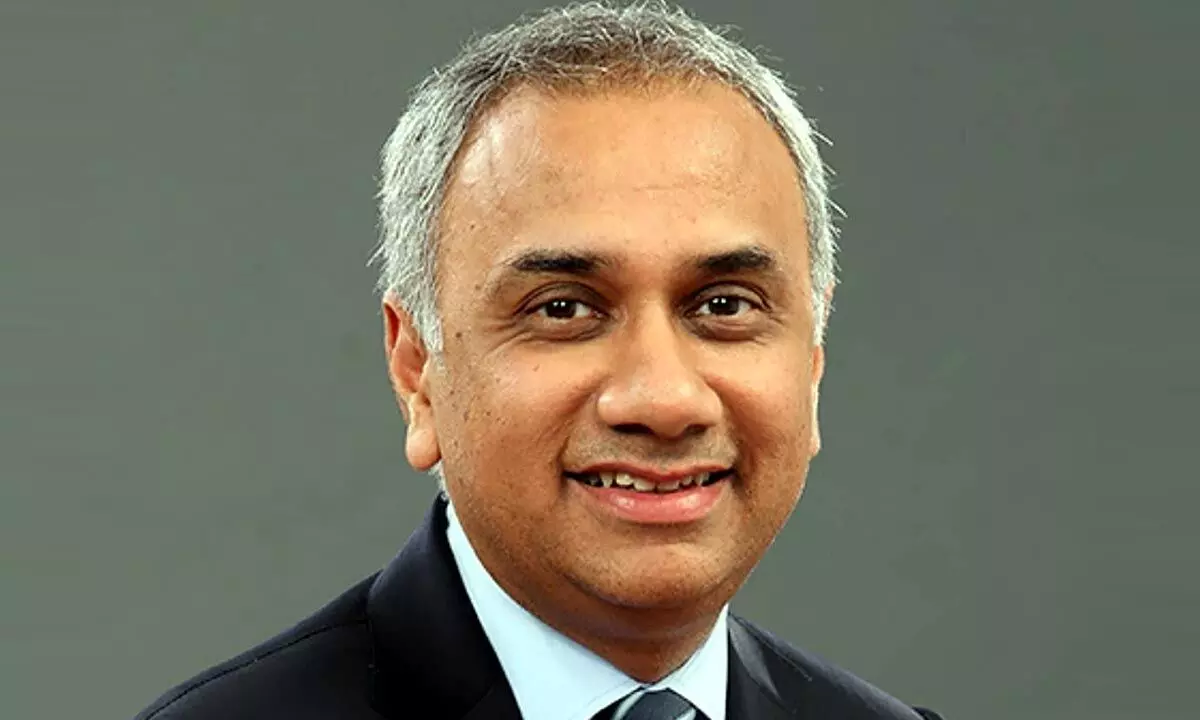Clients insist on in-office work, says Infosys CEO Salil Parekh
Infosys, the renowned IT services company, is facing demands from some of its clients to handle projects exclusively from office, despite the company's flexible approach to remote work. At the recent annual general meeting (AGM), Infosys CEO and MD Salil Parekh addressed these concerns by emphasizing the need for increased social capital and connection among employees for collaboration, training, and innovation in the future. He stated that Infosys maintains a flexible approach, allowing employees to work from home or adopt a hybrid work model based on client requirements. However, in cases where clients insist on on-site work, Infosys has dedicated teams working within their campuses.
image for illustrative purpose

Infosys, the renowned IT services company, is facing demands from some of its clients to handle projects exclusively from office, despite the company's flexible approach to remote work. At the recent annual general meeting (AGM), Infosys CEO and MD Salil Parekh addressed these concerns by emphasizing the need for increased social capital and connection among employees for collaboration, training, and innovation in the future. He stated that Infosys maintains a flexible approach, allowing employees to work from home or adopt a hybrid work model based on client requirements. However, in cases where clients insist on on-site work, Infosys has dedicated teams working within their campuses.
Infosys CFO Nilanjan Roy echoed Parekh's sentiments and highlighted the company's encouragement of employees to come to the office a few days a week, as he believes this fosters social capital. The emphasis on social capital signifies the importance of interpersonal connections, knowledge sharing, and teamwork in driving productivity and success within the organization.
This discussion comes shortly after Infosys announced the end of work-from-home arrangements for employees in its US and Canada offices, mandating a five-day office workweek. However, the company communicated that employees could request special permission to work remotely. It should be noted that these changes in work policy do not apply to Infosys' offices in India.
It is worth mentioning that Infosys had implemented a phased plan in India last year to transition from remote work to office-based work. Initially, employees were allowed to come to the office twice a week based on their convenience. In the subsequent phase, employees were given the option to relocate or transfer to different branches. Finally, Infosys formulated a hybrid work policy based on feedback from the previous stages.
Although Infosys has been flexible in accommodating remote work, the recent demands from certain clients have led to a renewed focus on in-office collaboration and social capital. While the company recognizes the benefits of remote work, it acknowledges the importance of interpersonal interactions for creativity, learning, and team dynamics. Infosys aims to strike a balance between client requirements, employee preferences, and the overall objectives of fostering a cohesive work environment.

